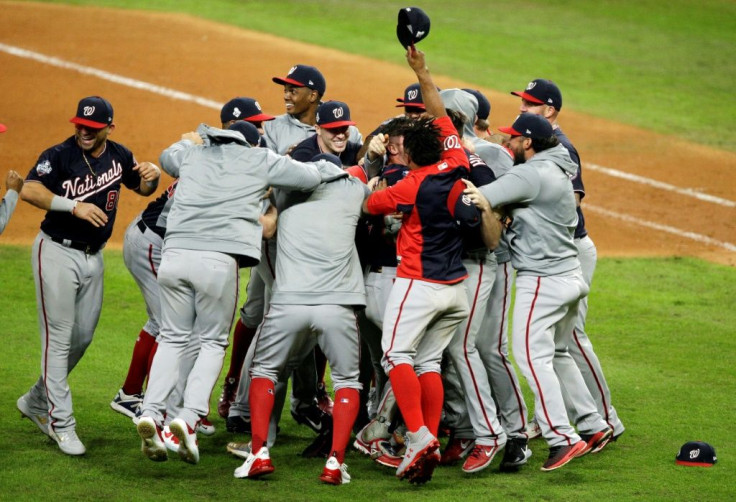MLB 2020 Season: How Will A 60-Game Schedule Affect The Standings, World Series, MVP?
There is so much uncertainty surrounding the 2020 MLB season. Assuming the league comes back without any hiccups—far from a guarantee given the rising coronavirus cases in certain parts of the country—it will be unlike any year in the sport’s history.
Owners and the players’ union have agreed to a plan for a 60-game season, starting on July 23 or 24 and concluding on Sept. 27. The playoffs will last nearly half as long as the regular season, that is if the postseason doesn’t get canceled.
What does that mean for the competitiveness in baseball? Will more long shots have a chance to contend for the World Series?
Maybe we can learn something from what happened last season.
By June 6, 2019, every team played at least 60 games. The New York Yankees, Minnesota Twins and Houston Astros all led their respective divisions in the American League. In the National League, the Philadelphia Phillies and Los Angeles Dodgers were in first place. The Chicago Cubs and Milwaukee Brewers were tied atop the NL Central.
The Tampa Bay Rays and Texas Rangers were the AL wild-card teams. Milwaukee—Chicago had a better winning percentage—and the Atlanta Braves were the NL wild-card teams.
The AL playoff picture almost remained exactly the same through the end of the season. The Yankees, Twins and Astros finished in first place. The Rays won the AL Wild-Card Game. The Oakland Athletics, who trailed Texas by 1.5 games on June 6, earned a wild-card spot.
Over in the NL, the Dodgers were the only team that maintained their spot atop the division. The Braves won the NL East, and the Phillies dropped to fourth place. The St. Louis Cardinals won the NL Central as the Cubs missed the playoffs by five games. Milwaukee earned the second wild-card berth, losing their only postseason game to the Washington Nationals.
The defending champions Nationals wouldn’t have won the World Series if the season ended at 60 games. Washington looked nothing like a contender on June 6, trailing the second wild-card spot by five games with the third-worst record in the NL.
As far as individual awards go, they might have been the same if the season ended on June 6.
NL MVP Cody Bellinger was leading the majors at that time with a 1.177 OPS and a .370 batting average. Bellinger was first in the NL with a .456 on-base percentage. Runner-up Christian Yelich ranked second in the NL in wRC, OBP and OPS while leading all players with 23 home runs.
AL MVP Mike Trout ranked first in MLB with a .462 OBP. His 1.068 OPS was only .004 points behind AL leader Joey Gallo. Trout’s 59 wRC was tops in the AL. Runner-up Alex Bregman was second with 53 wRC.
It’s uncertain how a 3.5-month hiatus in spring training will affect the performances of the league’s top players.
A players’ strike limited teams to between 103 and 109 games in 1981. After the World Series was canceled because of the 1994 strike, 1995 featured a 144-game season. The 1981 champion Dodgers and 1995 champion Braves were considered to be top contenders before the year began.
Hopefully, we’ll get to find out if a 60-game season produces a similar result.

© Copyright IBTimes 2024. All rights reserved.






















